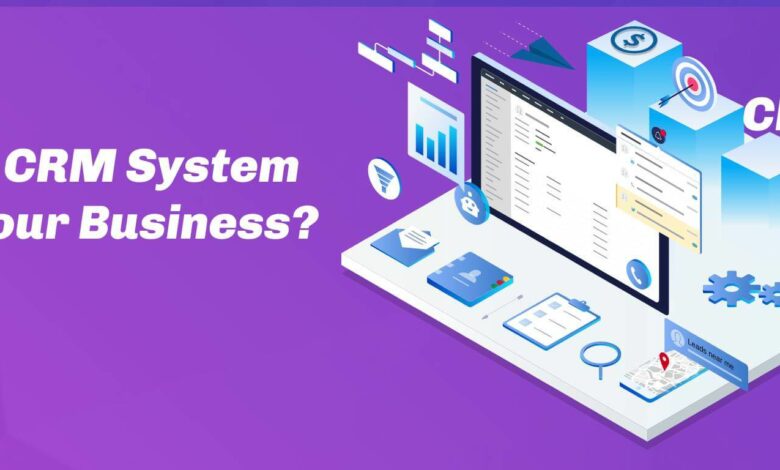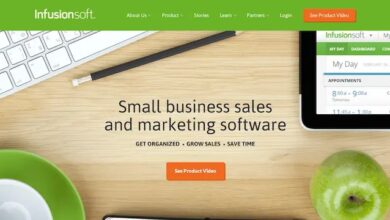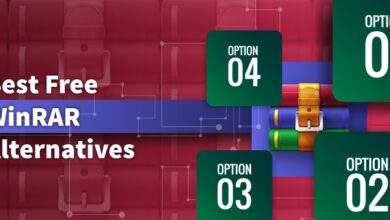How to Select the Perfect CRM Solution for Your Company?

Customer relationship management (CRM) has become essential in today’s competitive business market to keep customer relationships, improve sales, and promote business growth. Choosing an appropriate CRM solution is the key decision that could have a big impact on your company’s success. With so many options accessible to people, you must move carefully through the selection process of choosing your CRM.
In this post, we’ll guide you through the important factors to consider when selecting a CRM platform for your company.
Define Your Business Goals
Begin by defining your company’s objectives and goals. Understand the specific issues you want to solve and the objectives you want to attain with a CRM solution. This understanding will assist you in aligning company needs with the functionality and capabilities provided by many different CRM solutions. According to a Salesforce report, 70% of firms prioritize CRM investments to improve customer experience.
Assess Scalability
Your clients and data will expand as your company expands. It is important to choose a CRM system that can grow with your company. Consider the number of users, storage space, and capability to satisfy projected growth. Sustainable CRM software guarantees the money you spend remains relevant and satisfies the needs of your business in the long run.
Analyze Ease of Use
The user-friendliness and intuitiveness of a CRM solution are key for ensuring broad adoption within your company. Take into account the accessibility across various devices, ease of customization, and interface design. A Capterra study found that 25% of CRM users cited usability as the most important consideration when selecting a CRM solution.
Evaluate Integration Capabilities
For better productivity and data quality, your CRM system should easily interact with your current systems and software tools. Examine how well it integrates with your email system, marketing automation program, project management tools, and other tools that are necessary for your business operations. By 2023, 65% of CRM software will have artificial intelligence (AI) features built into their platforms, according to a Gartner survey.
Mobile Accessibility
The ability to access CRM systems via mobile devices is necessary in the mobile-first world of today. For your sales and customer service staff to be responsive and effective, they need mobile access to CRM data. To ensure smooth access and operation across devices, look for CRM solutions that have powerful mobile apps or mobile-responsive interfaces.
Data Security and Privacy
When choosing a CRM system, data security should be given high consideration due to the rising risk of data breaches and privacy issues. Consider the safety measures the CRM provider has put in place, such as the use of encryption, access limitations, and recurring security updates.
Make that something that complies with any applicable regulations regarding the protection of data, such as the GDPR or CCPA. 92% of customers, according to PwC research, would be concerned about their data being compromised in a security incident.
Consider Customer Support and Training
For a CRM setting up to be successful, customer training and support resources must be available. Consider the reputation of the vendor for customer service, considering into account the response times, technical help, and user forums. To guide your employees in using a CRM system efficiently, find out whether there are any training materials, manuals, or online lessons available. According to a Gartner poll, 64% of clients rate customer care and support as the most essential factor when selecting a CRM provider.
Know Your Niche for Your CRM
Different types of niche CRM software are those that are created specially to meet the demands of a given industry. To address the problems and needs of organizations that work in certain industries, these specialized CRM software alternatives include industry-specific features, functionalities, and integration. Here are a few examples:
Real Estate CRM: The demands of real estate brokers, agents, and companies are offered by real estate CRM software. It has capabilities like lead tracking, automated email marketing, property and listing administration, and MLS platform integration.
Healthcare CRM: CRM software for the healthcare industry focuses on managing patient relationships and enhancing medical care. It has features including managing patient records, scheduling appointments, tracking referrals, and adhering to HIPAA regulations for data protection and privacy.
E-commerce CRM: Online e-commerce businesses can manage customer relationships, sales, and marketing efforts with the use of e-commerce CRM software. Order management, client segmentation, failed cart recovery, and integration with well-known e-commerce platforms are some of its features.
Accounting CRM: Accounting client relationship management software caters to accounting, CPA, and bookkeeping companies. It includes capabilities like accounting task management, client onboarding, workflow automation, email management, billing, and document management.
Nonprofit CRM: The specific demands of nonprofit organizations are supported by nonprofit CRM software. It features management of donors, tracking of volunteers, management of fundraising campaigns, management of events, and connectivity with well-known payment channels.
You can get greater outcomes in your industry by streamlining operations, increasing customer happiness, and selecting CRM software suited to your industry.
Conclusion
It’s important to carefully consider your goals, scalability, usability, integration possibility, digital availability, security of your data, your niche, and customer support when selecting the best CRM solution for your company.
You may make a well-informed choice that empowers your company to improve client satisfaction, boost productivity, and achieve sustainable growth by matching your needs with the features and capabilities of CRM systems. Remember that spending time and effort upfront to choose the best CRM solution can have a big impact on your company’s long-term success and customer relationships.



